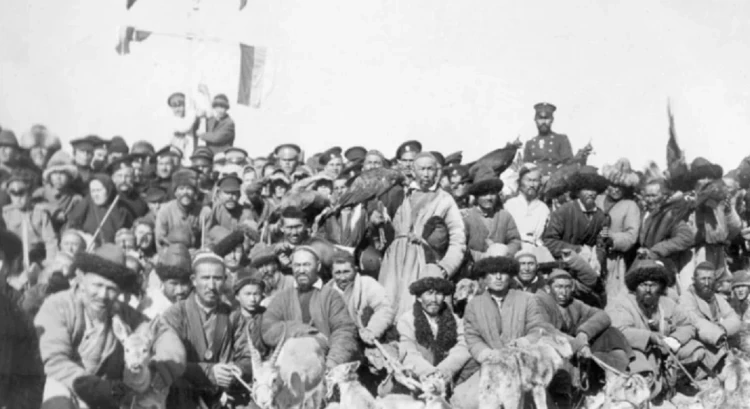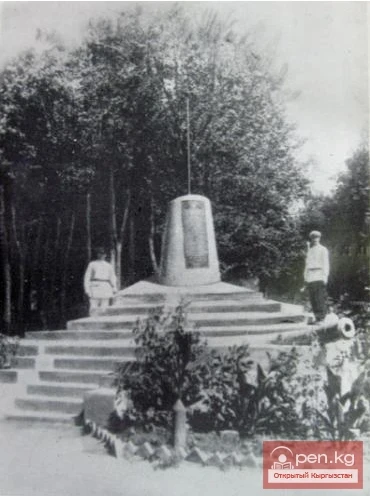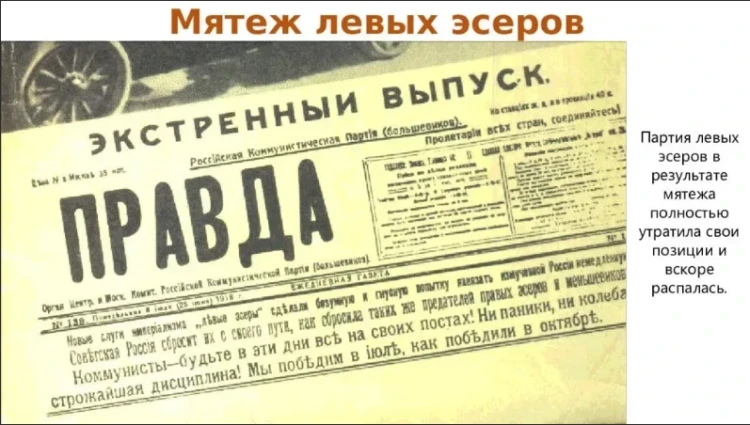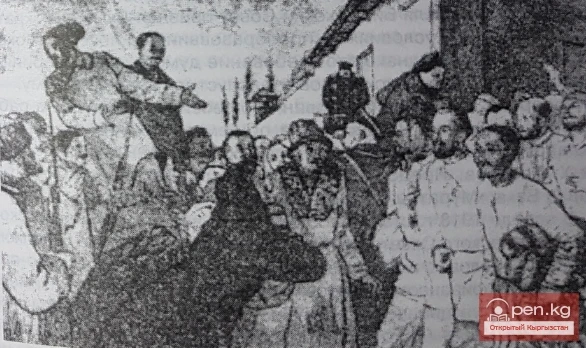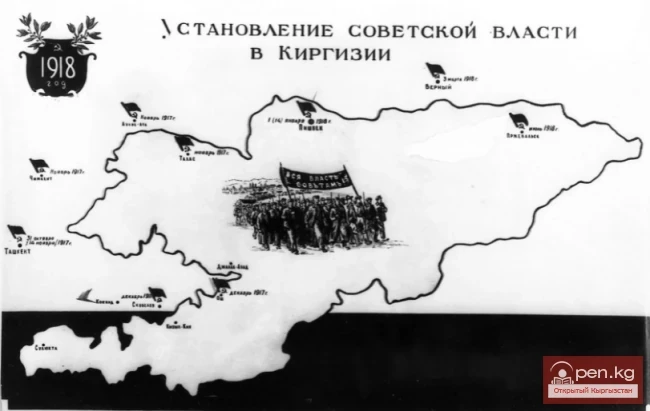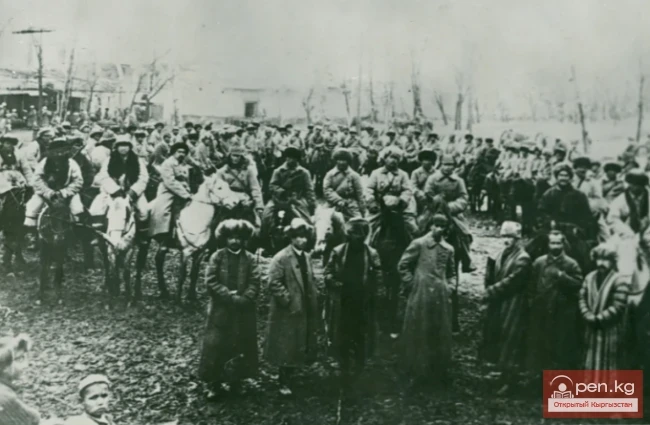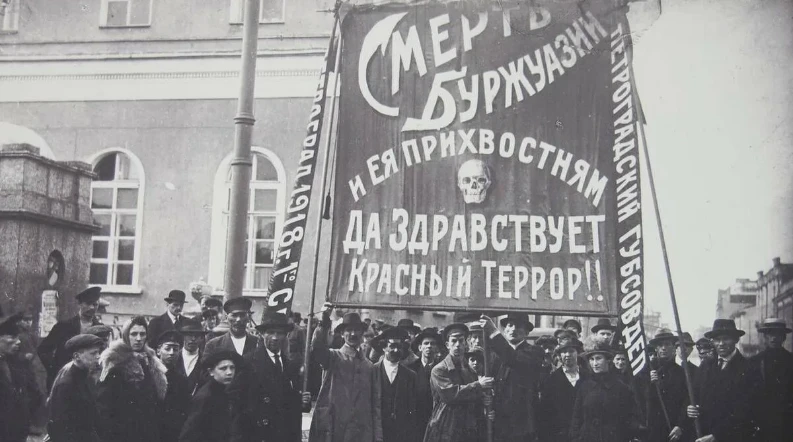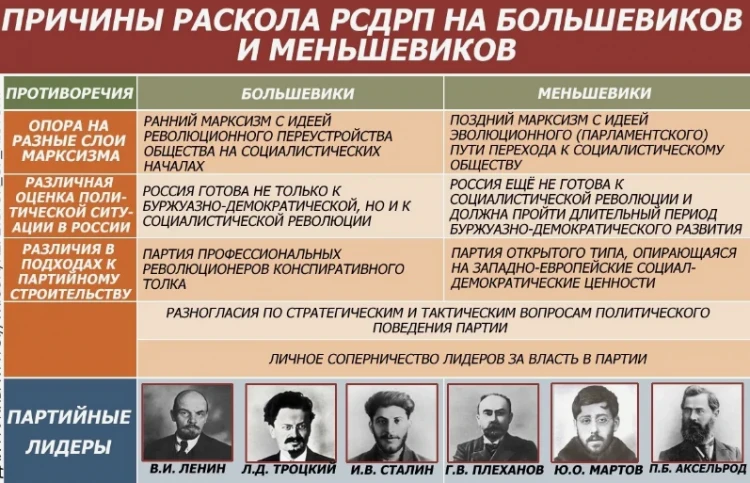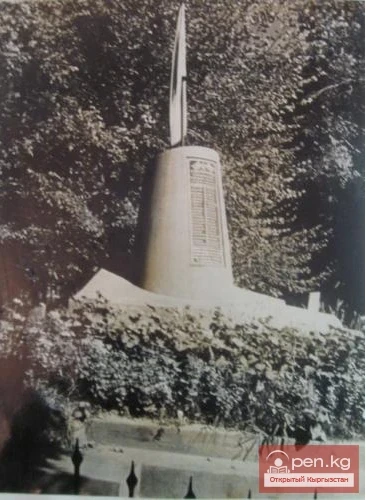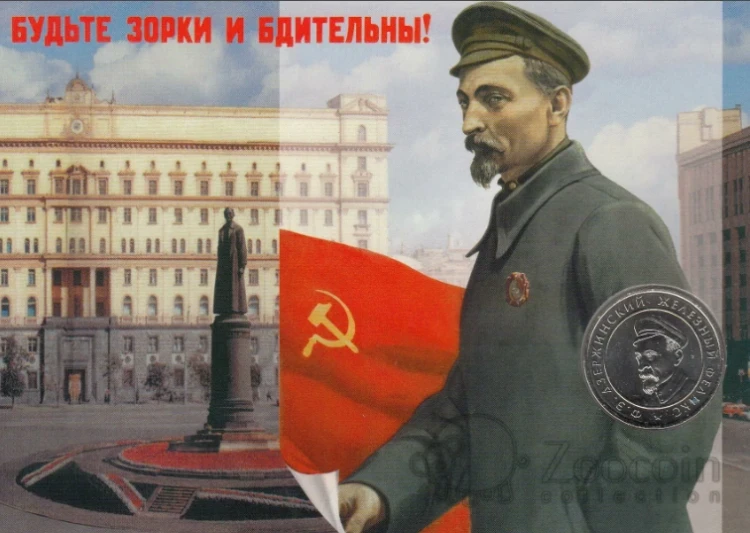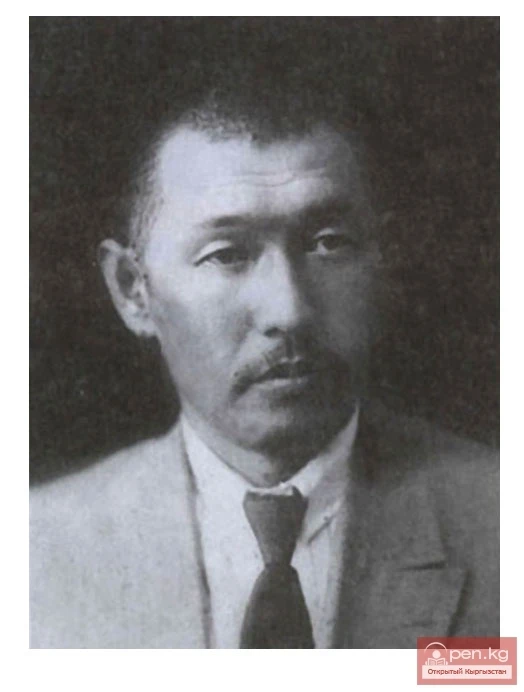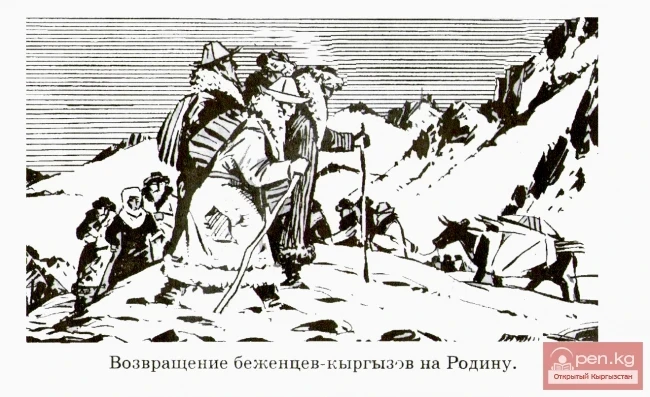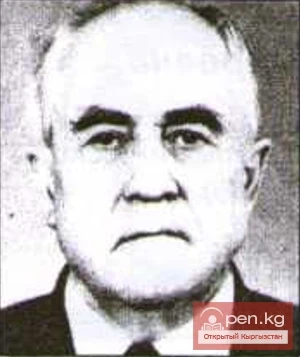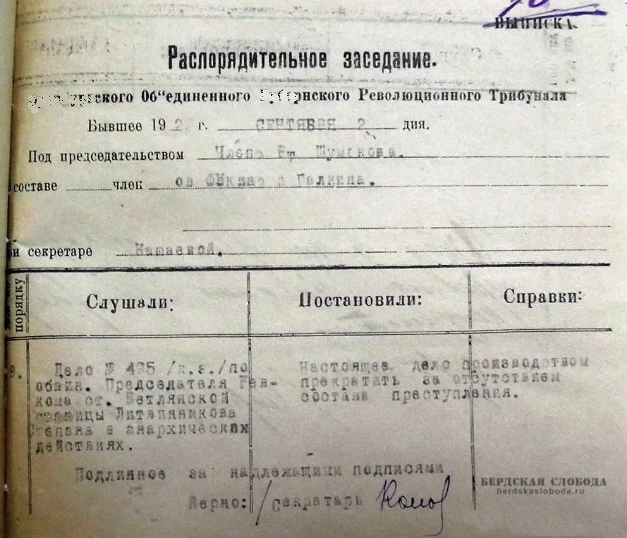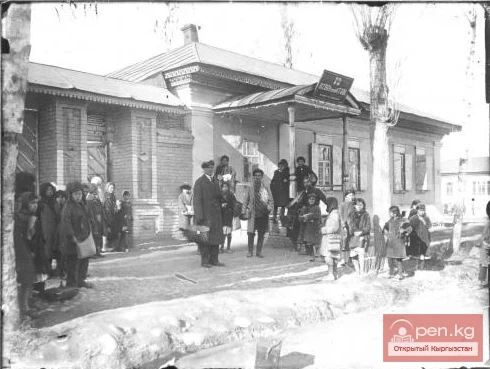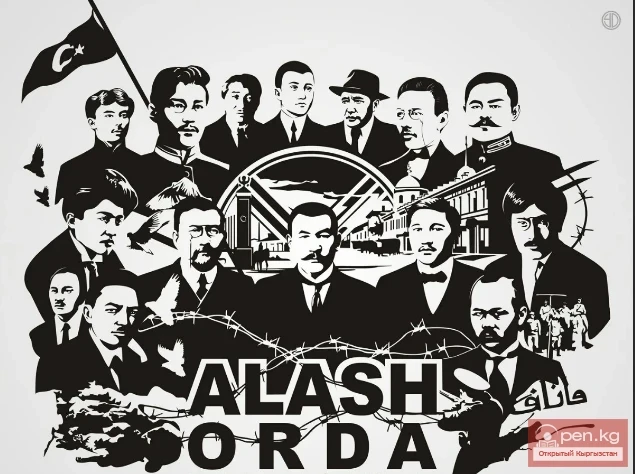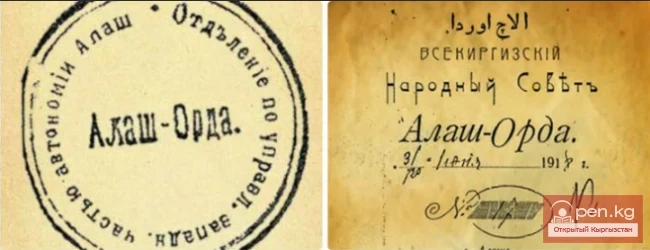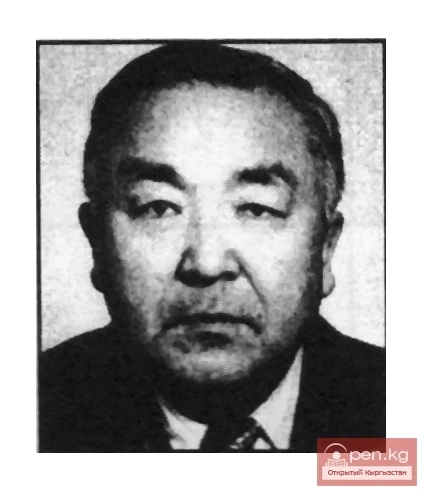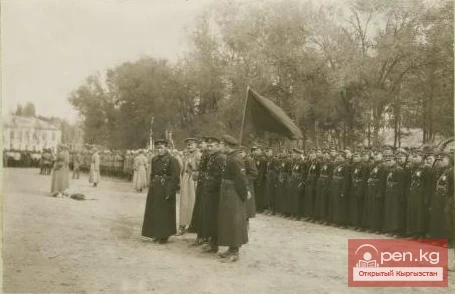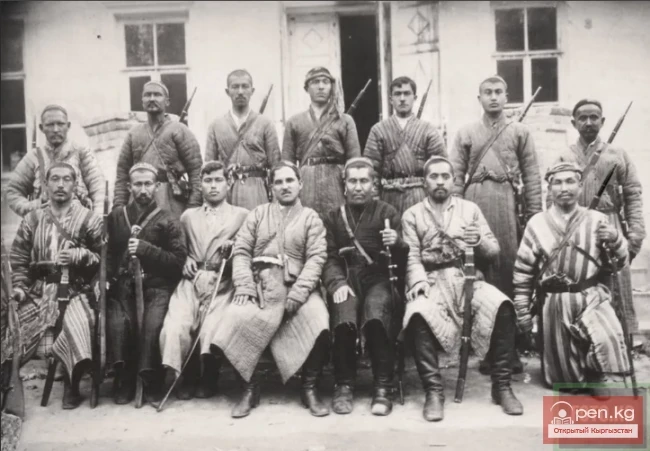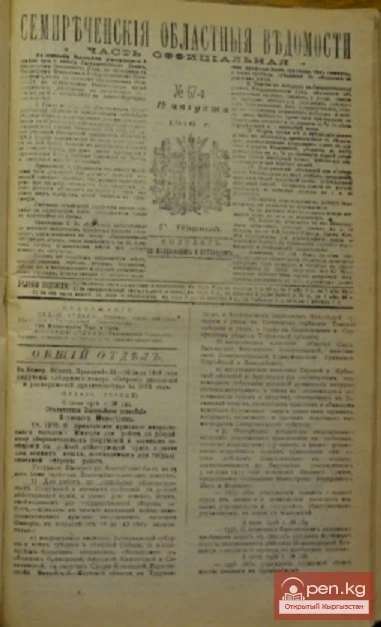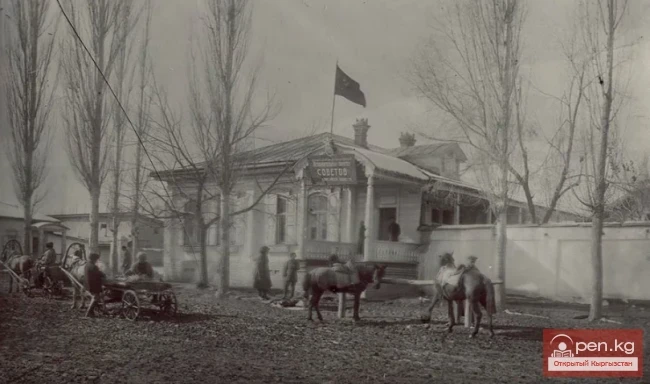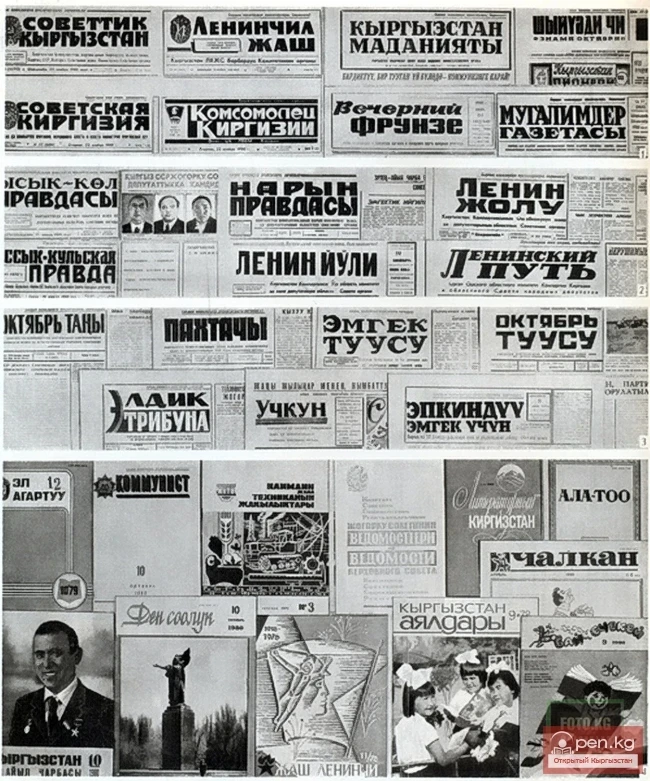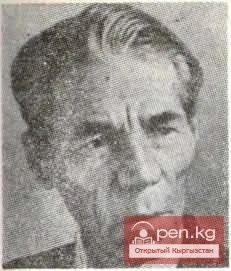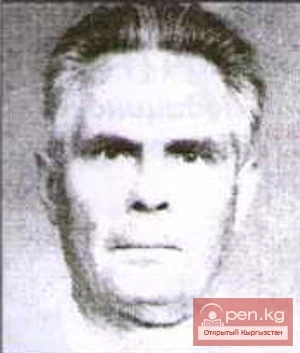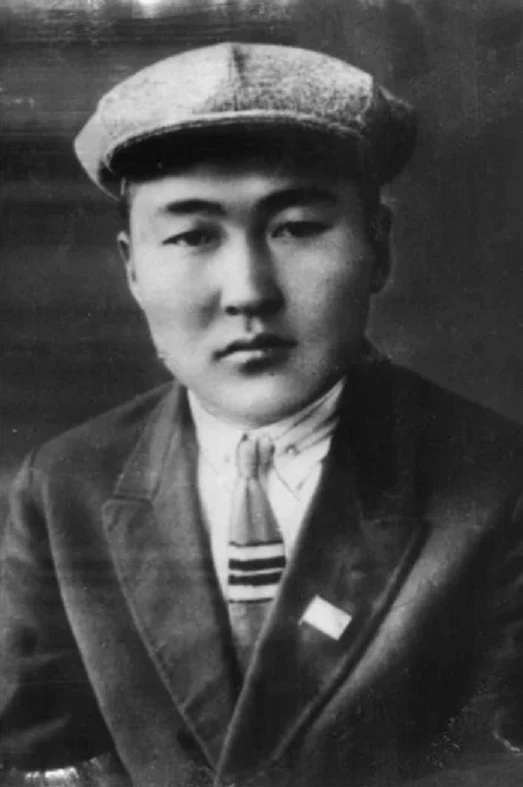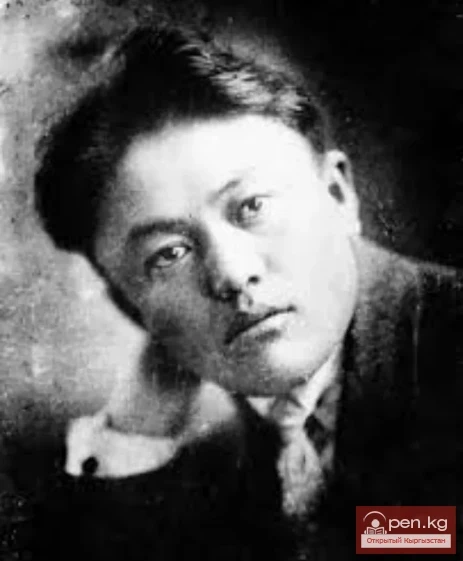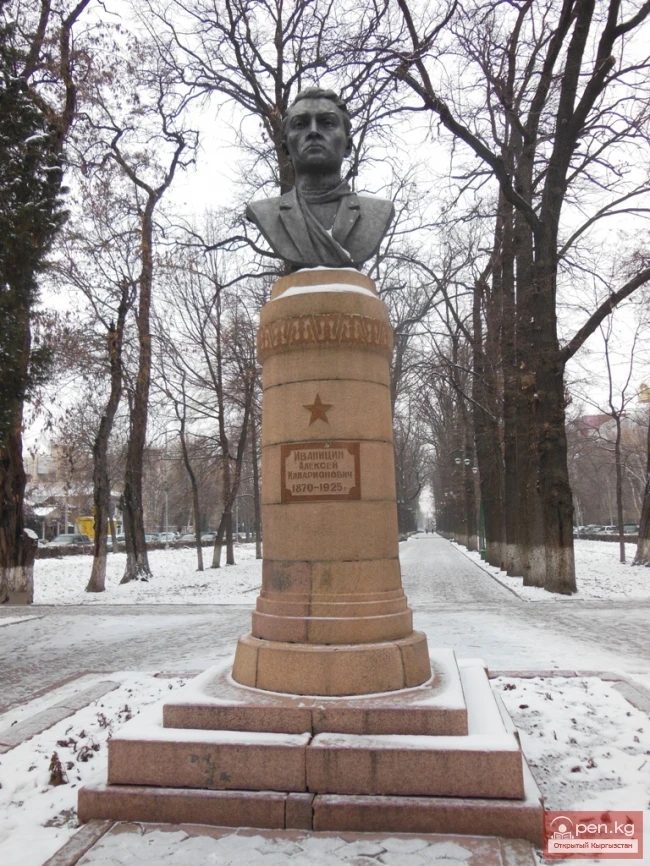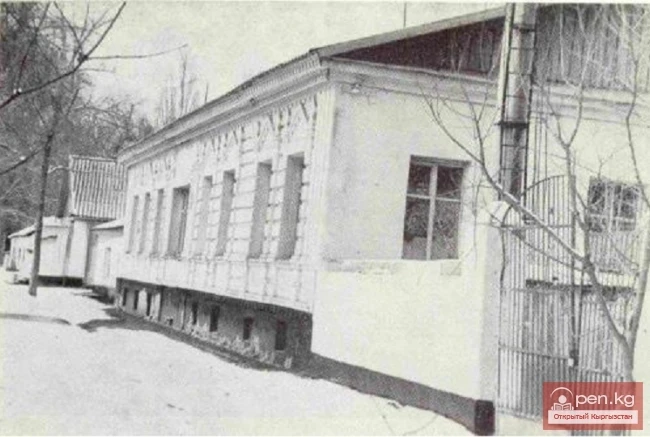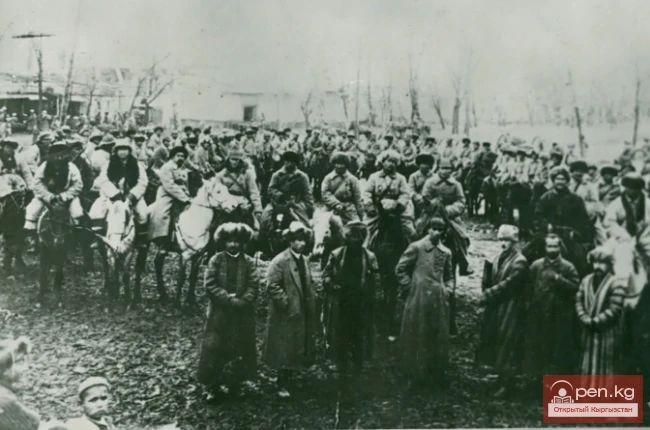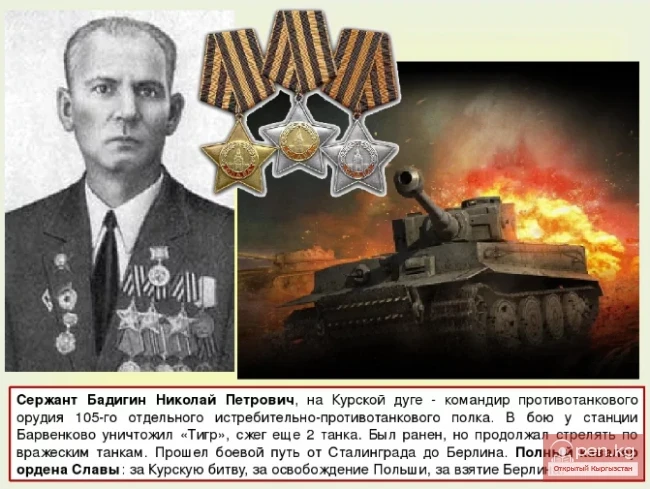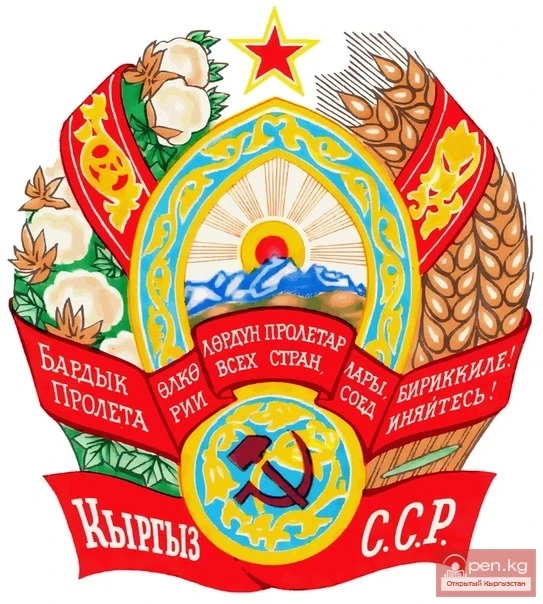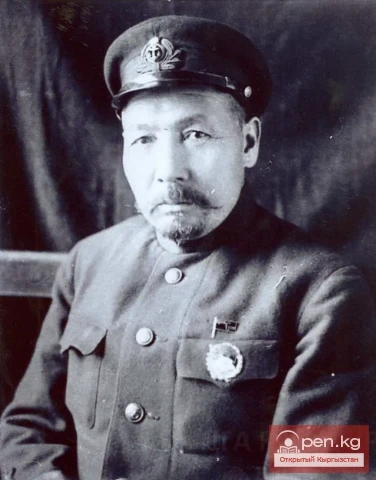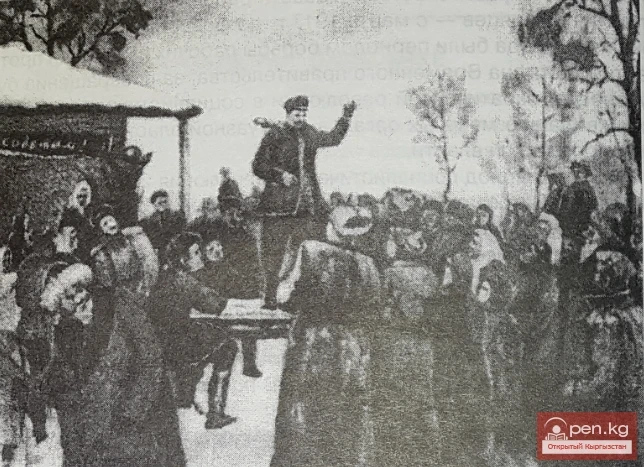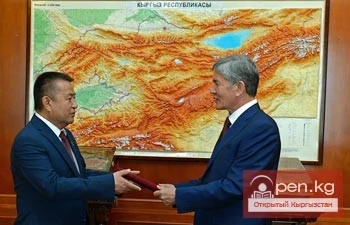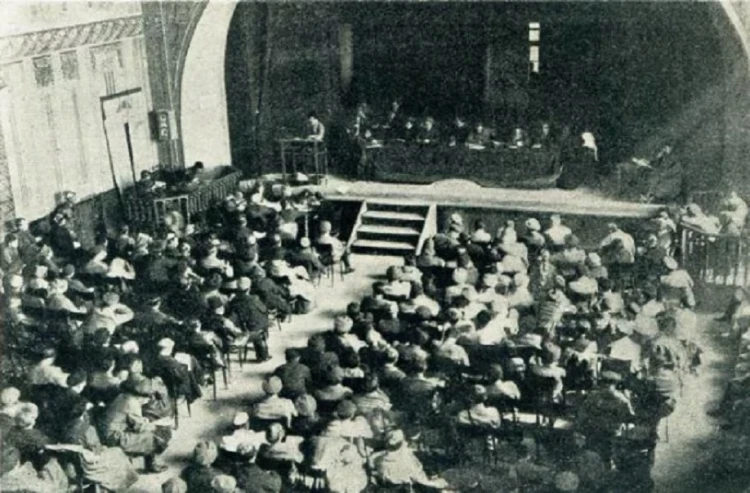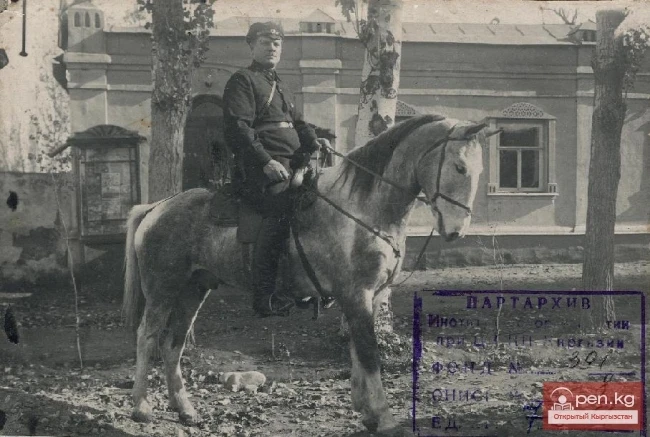
The significant role of the Left Socialist-Revolutionaries in the fate of revolutionary Russia was acknowledged even by Lenin, who had always held a hostile view towards any kind of "deviationists" from the "general line." In his obituary for Proshyan, who died a few months after the July uprising underground, he wrote: "And yet Proshyan managed to do more for the strengthening of Soviet power until July 1918 than from July 1918 onwards for its undermining."
The Left Socialist-Revolutionaries of Turkestan distanced themselves from the actions of their Russian comrades and condemned the uprising. However, even this belated confirmation of loyalty did not save them from the impending dissolution, as the Left Socialist-Revolutionaries were no longer needed as equal partners and allies to the Bolsheviks.
Official directives from above regarding the admission of former members of the Left Socialist-Revolutionary party into the ranks of the Bolsheviks accelerated the disintegration of its local organizations. In October 1918, the Left Socialist-Revolutionary faction of the Semirechye Regional Congress of Soviets merged with the Bolsheviks. At that time, there were 1,321 members of the Left Socialist-Revolutionaries in the Pishpek district, compared to 1,680 members in the Bolshevik party. On November 18, 1918, the Bolshevik and Left Socialist-Revolutionary factions united within the framework of the Pishpek Soviet, and by the summer of 1919, the Soviets of Kyrgyzstan were finally cleansed of representatives of non-communist parties.
“My joining the ranks of the Communist Party on October 29, 1918, during the merger of the latter and the Left party,” wrote A. Sydykov, “finally defined my political credo.” He intended to go with the Bolsheviks to the end. But he turned out to be only a temporary companion for them.
From this entry, it follows that A. Sydykov's transition to the Bolshevik party was a forced step, dictated by the merger of the parties.
What was appealing about the Left Socialist-Revolutionary party to Kyrgyz politicians? Certainly not its promise to allocate 30 hectares of land to each peasant in the event of victory. This slogan could attract only the resettlement masses or the small settled Kyrgyz population in Kyrgyzstan. The Left Socialist-Revolutionary party could attract Kyrgyz politicians primarily due to its resolute struggle against tsarism, its glorious revolutionary traditions rooted in the narodniks, who were the initiators of several assassination attempts on Russian tsars. This circumstance, especially after 1916, became significant for the peoples of Turkestan, who were brutally exploited by tsarism.
The masses did not always see the differences in the positions of the Bolsheviks, Mensheviks, and Socialist-Revolutionaries. Therefore, it would be a great simplification to think that by joining one party or another, they made a conscious choice between capitalism and socialism, reformism and revolution. This was accessible, rather, to the intelligentsia and the educated part of the workers. Overall, their preference was often for an honest and just government, popular sovereignty, and democracy, and for the Kyrgyz people, it also included national equality.
The main point was that a significant psychological shift occurred in society—the realization of the futility of existing within the framework of the old social system.
The aforementioned, based on personal experience, is confirmed by A. Sydykov. Responding to a question from a questionnaire of the Central Committee of the Communist Party of Kyrgyzstan in 1924, one of the most enlightened representatives of his people wrote: “Theoretically, I do not have a Marxist background, but I am starting to prepare as much as possible.” The question arises—could, in light of this revelation, Kyrgyz society fully grasp and understand Marxism, which seemed to crown the treasury of universal thought at that time? However, even V. I. Lenin himself did not believe in such a capacity of the masses. In 1914, in exile, the universally recognized leader of revolutionary Marxism, its theorist and practitioner simultaneously, Lenin wrote: “One cannot fully understand Marx's 'Capital,' especially its first chapter, without having studied and understood the entire logic of Hegel. Therefore, no Marxist understood Marx a quarter of a century later.” Moreover, the system did not require the masses to have a genuine knowledge of theory. Much more important was the mechanical assimilation of the slogans of Bolshevism by the masses, as they were assigned the role of "cogs" and "screws" in socialist construction.
Prohibition of the Left Socialist-Revolutionary Party
